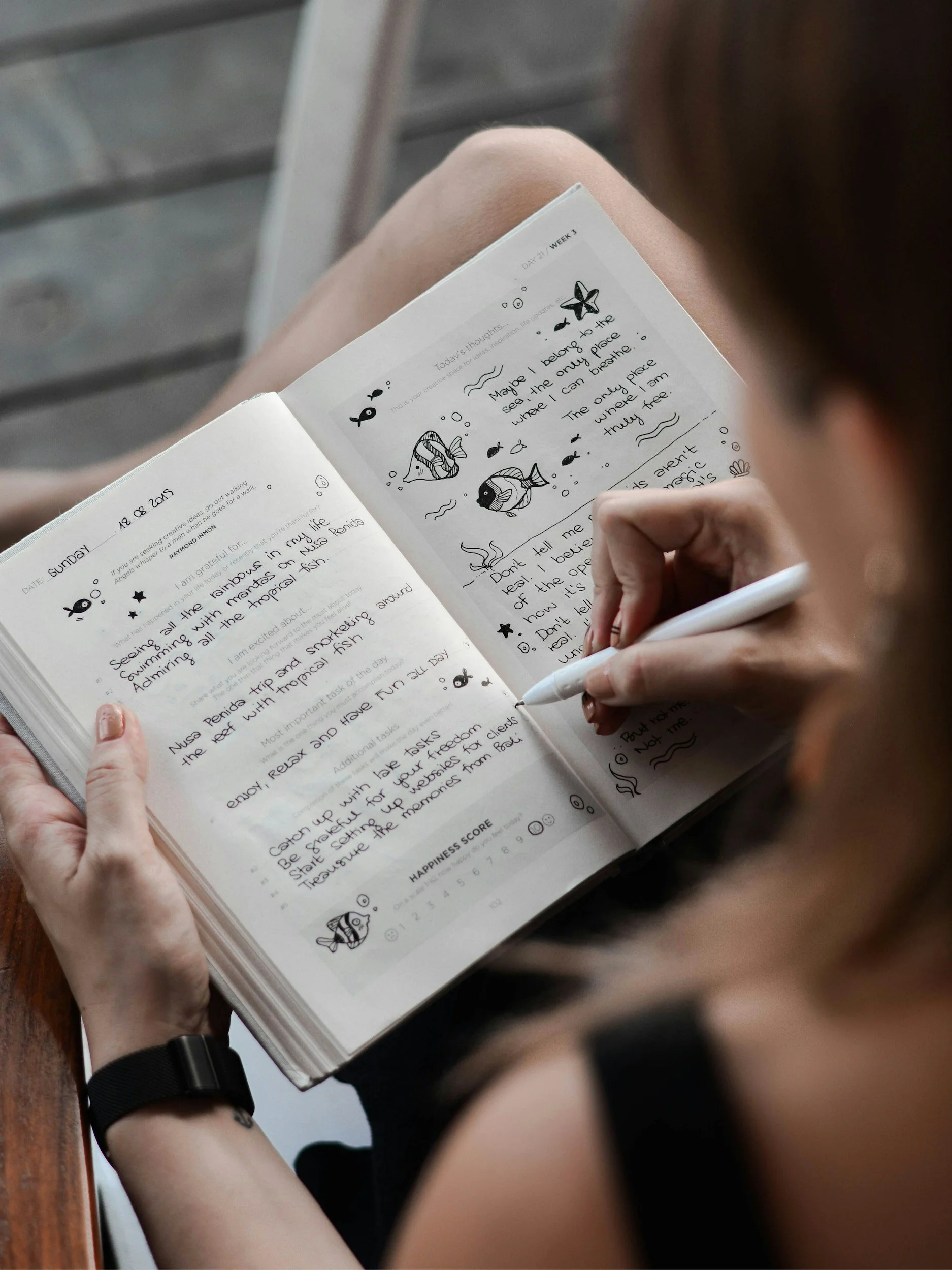How Tapping Into Different Forms of Rest Helps Caregiver Burnout
by Emelda De Coteau
Inconsistent sleep. Sensory processing differences. Anxiety. Hyperactivity. Running back and forth to therapy & doctor / specialist visits. Isolation (because so few people understand and have the capacity to hold space for the range of our experiences). Advocating like a mother for Nai & our neurodivergent community.
Any one of these alone is enough to lead to overwhelm - juggling it all, day after day, without radical self-care practices can sink us into ongoing caregiver burnout. And we (as a society) are not talking about it enough - particularly as it relates to parenting neurodivergent kids.
Nai is a high-support needs kiddo, and our care for her is multi-layered. We (like so many other parents) are rooting our family in unconditional love, compassion, empathy, and continual advocacy. Mamas like us often carry invisible wounds and trauma. Our families are moving through a world rooted in ableism - far too often the disabled community is dismissed. It’s a lot to hold - especially when many of us are simply surviving from moment to moment; our minds, bodies and spirits are swimming in hypervigilance.
According to Caregiver Action Network": "Caregiver burnout refers to a state of emotional, physical, and mental exhaustion caused by prolonged stress of caregiving. This condition often develops gradually as the demands of caring for a loved one accumulate over time.”
And because we experience a build up of caregiver burnout, it’s often challenging to notice the signs. We’re always in go mode (sound familiar?). And I know for kids like ours, with high support needs, this isn’t a choice, but a necessity.
But not tending to caring for ourselves (even skipping small doses of radical self care is a recipe for burn out). Recently, I read an article from Child Mind Institute about self care for parents raising kids with disabilities and mental health challenges and the impacts of chronic stress we experience:
Studies show that parents of children with developmental, psychiatric or learning disorders are far more likely than others to experience:
Anxiety
Depression
Insomnia
Fatigue
Marital problems
According to one British study, chronic stress puts these parents at risk for medical issues as well. This study found that parents of children with either autism or ADHD had significantly higher levels of both cortisol, the stress hormone, and CRP, a biomarker linked to everything from colorectal cancer to diabetes to heart disease.”
Different Forms of Rest
Recovering from burn out can take shape in various ways; one tool I’ve embraced is rooting in different forms of rest.
Stay with me, Mamas, because I am not about to tell you - “get more sleep,” (realistically shutting our eyes for longer than a few hours some nights is miraculous). We require a deeper, more nuanced approach to rest. Expanding our understanding helps us to support ourselves along this neurodivergent motherhood journey.
Let’s unpack three forms of rest - what each one looks like, and why they are essential to our recovery from caregiver burnout.
1. Sensory Rest: Quieting the Overload
Our days often revolve around navigating meltdowns, managing sensory sensitivities (both our kids’ and potentially your own!), advocating at school, running to therapy sessions,, and constantly being attuned to subtle cues. And these environments are often a barrage of sensory input: loud noises, bright lights, constant touch, varying textures, and a never-ending stream of information to process.
Sensory rest is about intentionally reducing the input flooding our nervous systems. It's not just about silence, but about cultivating space for your senses to recharge.
What it looks like:
Spending time in a quiet, dimly lit room.
Wearing noise-canceling headphones, even if just for a few minutes.
Taking a warm bath after the kids are off to sleep (love my lavender scented soap when I am soaking)
Breathing in the serenity of nature by stepping outside for a few moments (before work or on your lunch break)
Minimizing screen time, especially before bed.
Wearing comfortable, soft clothing.
Why it's crucial: Sensory overload contributes significantly to feelings of overwhelm, irritability, and exhaustion. By intentionally focusing on sensory rest, you're giving your brain a much-needed break from constant processing, allowing you to return to challenges with deeper clarity.
2. Creative Rest: Reconnecting with Your Inner Spark
The caregiving Mama life often requires constant problem-solving, adaptability, and out-of-the-box thinking. We constantly develop new strategies, adjust routines, and discover innovative ways to support our kids. While this uses your creative energy, it often drains your personal creative well. Creative rest isn't about producing something magnificent - it is allowing yourself to engage with activities rooted in joy, all while stimulating your imagination without pressure.
What it looks like:
Doodling, coloring, or sketching (no need for artistic talent!).
Listening to music that speaks to your spirit.
Engaging in imaginative play with your child, letting them lead.
Knitting, crocheting, or engaging in a craft just for fun.
Expressing yourself through writing - journaling, writing poetry, etc.
Why it's crucial: When our creative energy is constantly used for problem-solving, we start to feel dull, uninspired, and disconnected from our authentic selves. Creative rest recharges the spirit, and reminds us of the joy of exploration; this kind of rest can also spark new solutions to everyday challenges. Several years ago, after some quiet journaling time and in prayer, the idea to create a support sheet for Nai (thank you God) dropped into my consciousness. Those few moments of pause replenished me, and expanded my capacity for advocacy.
3. Emotional Rest: Processing and Releasing
Mamas like us often carry a heavy emotional load. Whether we are walking through worry, advocacy, the grief for a different path, the joy in small victories, frustration, and often, the pull of needing to be "strong" for everyone else. This can lead to emotional exhaustion, and many of us feel numb, irritable, or perpetually on the verge of tears. Emotional rest is about creating space to process these feelings, acknowledge their validity, and release them in healthy ways.
What it looks like:
Talking to a trusted friend (or group of friends), partner, or therapist who truly gets it.
Journaling about your feelings without judgment.
Allowing yourself to cry when you need to because emotional honesty is a well-being practice.
Setting healthy boundaries to protect your emotional energy (saying "no" when necessary).
Being in community / connection with other moms who share similar experiences (this is why When Motherhood Looks Different exists)
Practicing self-compassion and acknowledging it's OK not to be okay all the time.
Giving yourself permission to feel all your feelings without trying to "fix" them immediately.
Why it's crucial: Suppressing emotions takes an enormous amount of energy. Emotional rest allows you to unpack what you're carrying, validate your experiences, and prevent resentment and bitterness from building up. When you're emotionally rested, you have more capacity for compassion, empathy, joy, and resilience.
Burnout for caregiving Mamas like us is real, but we don’t have to stay there. You and I can come out of those capes, and take time to care for us. Our lives, and the lives of our family, depend on us caring for us. Take off the cape, Mama, and REST, even if you can only manage that break for a few minutes. You are worthy of rest (in all its forms), and heart-centered care.






